Network Team

Professor Janet Godsell
InterAct Network Co-director
‘Future of Digital Manufacturing Ecosystems’ research lead
Dean of the School of Business and Economics at Loughborough University
Jan Godsell is Dean of the School of Business and Economics and Professor of Operations and Supply Chain Strategy at Loughborough University. Her work focuses on the pursuit of more responsible consumption and production through the alignment of product, marketing, and supply chain strategy with consumer needs. Jan’s work focuses on the design of end-to-end supply chains to enable, responsibility, sustainability, resilience and productivity.
Jan is the workstream lead for ‘The Future of Digital Manufacturing Ecosystems’. This will examine how to develop more sustainable manufacturing business models, supply chains, and the role of innovative digital technologies (IDTs) in facilitating this shift.

Professor Jillian MacBryde
InterAct Network Co-director
‘Future of Work’ research lead
Professor of Innovation and Operations Management at University of Strathclyde
With experience in senior leadership roles at UK universities including Deputy Dean of The York Management School, Director of Business and Community Engagement at TYMS and Vice-Dean of Strathclyde Business School, responsible for Knowledge Exchange. Jill is currently overseeing Strathclyde University’s focus on Innovation and Operations Management in support of the National Manufacturing Institute for Scotland. She is Director of Research in the Department of Design, Manufacture and Engineering Management at Strathclyde.
Jill is leading the InterAct workstream ‘The Future of Work’. This addresses some of the major questions emerging from the initial project review, particularly the impact of IDTs on work, the impact of automation on job satisfaction, innovation and productivity and the people dimension of ecosystems and connectivity. This is aimed at attracting talent into manufacturing and ensuring investment decisions include thinking about people and work.
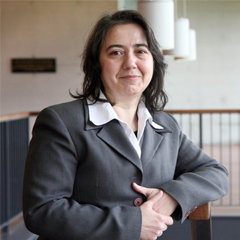
Professor Vania Sena
‘Future of the Economy’ research lead
Chair of Enterprise and Entrepreneurship and Director of the Centre for Regional Economic and Enterprise Development (CREED) at the University of Sheffield
Professor Sena’s first degree was awarded with laude by the University of Naples, Federico II, Naples, Italy; her postgraduate studies in Economics were carried out at the University of York, UK, where she was awarded both the MSc and the DPhil in Economics.
Her research focuses mainly on productivity growth, both at the micro and macro level with an emphasis on innovation, human capital and intellectual property. Her most recent research looks at the relationship among innovation activities,trade secrets and total factor productivity. She is a member of the Operational Society General Council and Board. She has been a visiting fellow at Harvard University, MA and at Rutgers University, NJ.
Vania is leading the InterAct workstream ‘The Future of the Economy’, which is examining the impact that the uptake of industrial digital technology in manufacturing will have on the wider economy and the implications of of this.
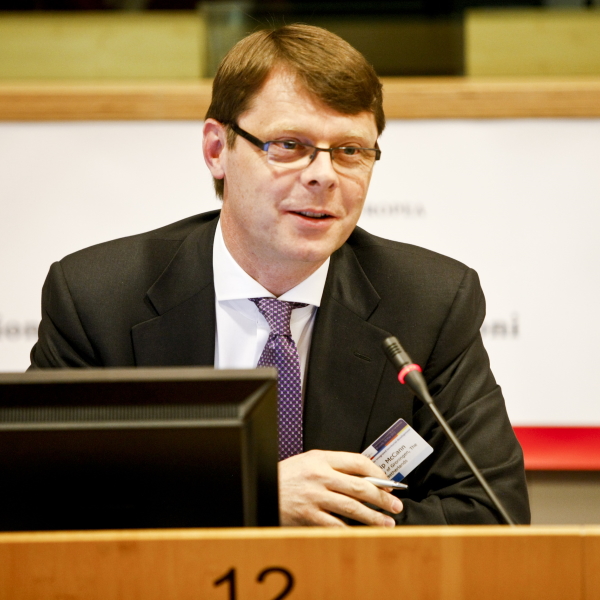
Professor Philip McCann
‘Future of the Economy’ co-investigator
Chair of Urban and Regional Economics at Alliance Manchester Business School
Professor Philip McCann, is the Chair of Urban and Regional Economics at Alliance Manchester Business School and ‘Geography and Place’ theme leader of The Productivity Institute (TPI).
He was previously Professor of Urban and Regional Economics at the University of Sheffield Management School, while he is also an Associate Faculty Member at the Blavatnik School of Government at the University of Oxford and an Honorary Professor of Economic Geography at the University of Groningen.
Professor McCann was the Co-Director and Principal Investigator of the Productivity Insights Network+ research programme funded by the ESRC between 2018 and 2021, while he is also a researcher with UK in a Changing Europe, the ESRC Rebuilding Macroeconomics Network, and the Institute for the Future of Work Pissarides Review.
He has also won eight international awards for his scholarship including the 2019 ERSA European Prize in Regional Science, while he has given keynote lectures and plenary talks across the world at institutions such as the European Parliament, the European Commission, the OECD, the UN, and the Federal Reserve of New York, as well as for various UK government ministries.
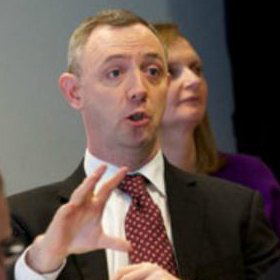
Professor Colin Lindsay
‘Future of Work’ co-investigator
Professor of Work, Employment and Organisation at University of Strathclyde
Professor Colin Lindsay MA, MSc, PhD has been researching and teaching on employability, skills, public management and social policy for more than twenty years. He has published more than 40 peer reviewed articles, book chapters and policy reports. His books include ‘Disability benefits, welfare reform and employment policy’ (co-edited with Donald Houston, published by Palgrave Macmillan, 2013).
He serves on the Editorial Boards of two journals: ‘Education & Training’; and ‘Social Policy and Administration’. He has co-edited special issues of the journals: ‘Environment and Planning C: Government and Policy’; ‘Policy Studies’; and ‘Social Policy and Administration’. He is a member of the Editorial Team for ‘Social Policy and Administration’.
He is a member of the Chartered Institute of Personnel and Development and the Social Policy Association.
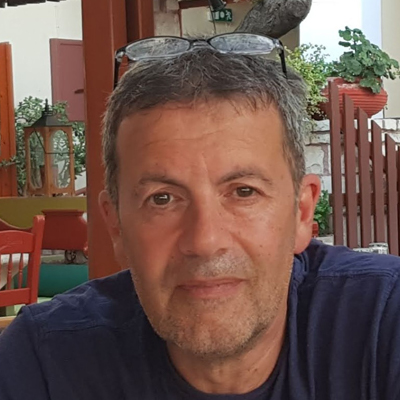
Dr. Robert Stewart
‘Future of the Work’ researcher
Research Fellow at University of Strathclyde
Robert is an experienced social science researcher with a history of working in HE and private sector consultancy.
He has extensive knowledge of policy evaluation and analysis, project, program and impact evaluation in social research. He has previously worked at the Universities of Glasgow, Edinburgh and Strathclyde with interests in employment & training, employee engagement and innovative, new technologies.
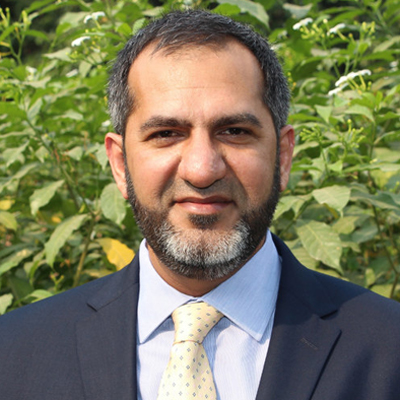
Dr. Kamran Chatha
‘Future of Digital Manufacturing Ecosystems’ co-investigator
Senior Lecturer at Loughborough University
Dr. Kamran Chatha is an experienced academic in the field of operations and supply chain management. After getting his Ph.D. degree from Loughborough University in manufacturing engineering, he spent seventeen years in Pakistan and UAE where he has been teaching, researching, and consulting in the field of operations and supply chain management. Dr. Chatha’s previous research broadly revolved around the areas of enterprise engineering, manufacturing strategy, and technology and innovation management. During this time, he has actively engaged with firms belonging to textiles, leather & sports goods, auto parts, and chemicals industries to develop managerial solutions, training programs, and make policy recommendations.
Dr. Chatha’s recent research work has focused on topics such as digital technology implementation in manufacturing firms, digital taxonomy development, digital maturity models, SCM system adoption in firms, and social sustainability and complexity in supply chains.
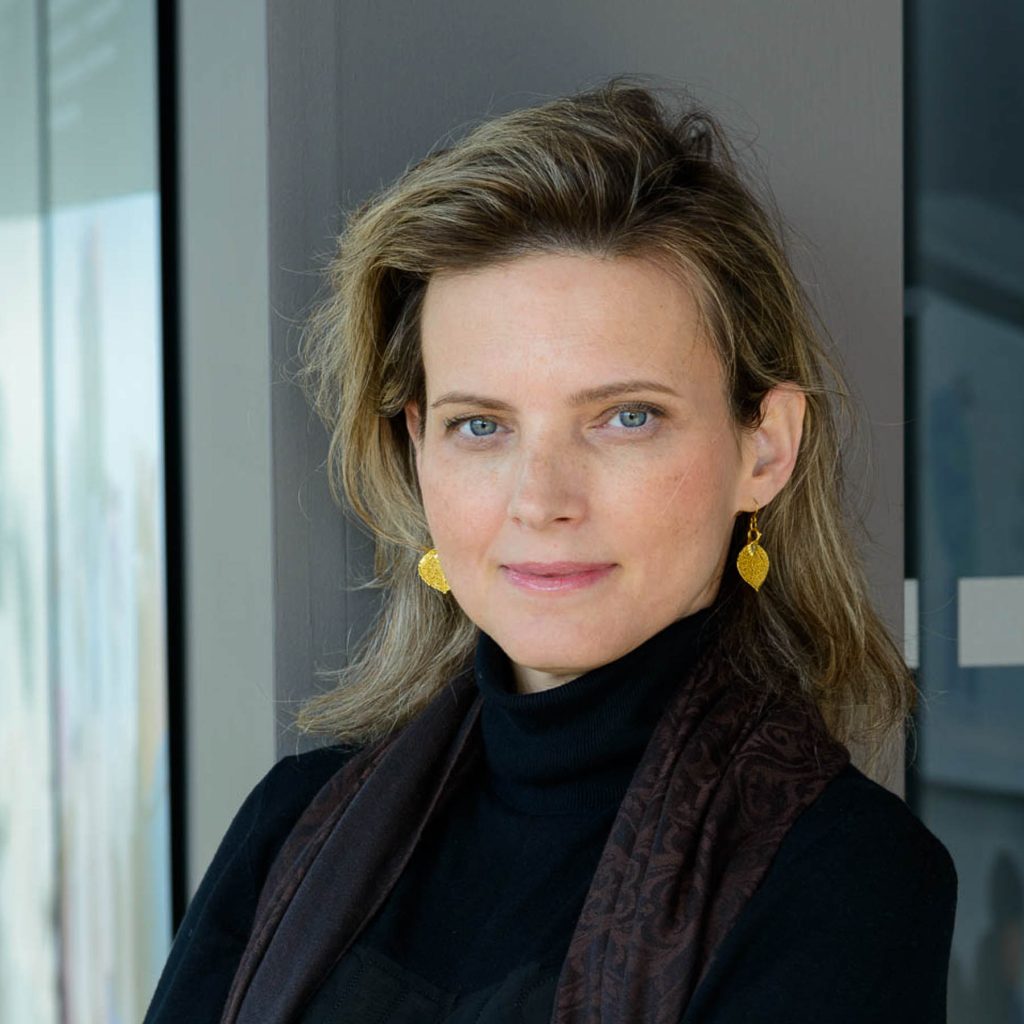
Dr Grammatoula Papaioannou
‘Future of Digital Manufacturing Ecosystems’ Interact Global Co-investigator
Senior Lecturer in Business Analytics at Loughborough University
Grammatoula obtained her Ph.D. degree from Loughborough University, when her research focused on operations in the cellular manufacturing sector. In the following years, Grammatoula extended her research agenda to the area of supply chain management, with the emphasis on sustainability issues and food supply chains. Her expertise also includes efficiency and productivity analysis, in particular, methodologies applicable to organisations with complex structures and approaches to the treatment of various types of performance data.
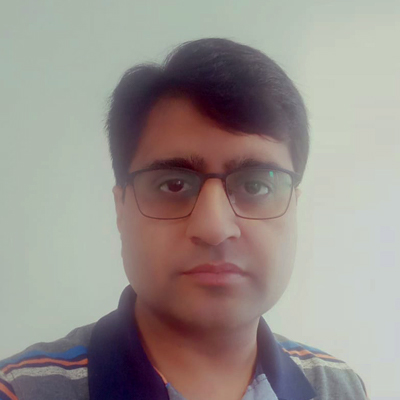
Dr Usman Ghani
‘Future of Digital Manufacturing Ecosystems’ Interact Global Co-investigator
Senior Research Fellow at Loughborough University
Dr Usman Ghani obtained PhD in Manufacturing systems design and planning through integration of virtual and real-world cases. Dr Ghani has worked on the business of automation at the Intelligent Automation Centre of Loughborough University which focused on redesigning business processes with regards to automation. His expertise covers performance evaluation of production systems, productivity enhancement, sustainability measures, value chain development and technology policies.

Angela Stewart
InterAct Network Manager
Angela is the the InterAct Network Manager responsible for the overall management and administration of the Network, including funding calls, research proposals, and processes,
Email: a.e.stewart@lboro.ac.uk
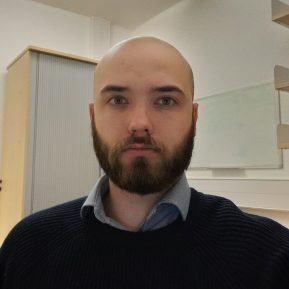
Will Blackshaw
InterAct Network Communications Manager
Will manages content creation, public relations, partnerships, and communications channels for the InterAct Network. Contact Will if you are interested collaborating on promotional activities or sharing research and content.
Email: w.s.blackshaw@lboro.ac.uk

Sachin Anand
InterAct Network Impact Manager
Sachin Anand manages the development and reporting of impact from the projects funded by the InterAct Network, including the publication of research outcomes and public engagement.
Email: s.anand@lboro.ac.uk
Storytelling Fellowship Team
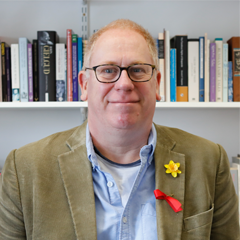
Professor Michael Wilson
Storytelling Fellowship Lead
Storytelling Academy Director
Professor of Drama and Head of Creative Arts at Loughborough University
Mike Wilson is Professor of Drama and Head of Creative Arts at Loughborough University, where he is also Director of the Storytelling Academy, a research and teaching collective in Applied Storytelling.
He has previously served as Dean of Research at Falmouth University and was Co-Founder of The George Ewart Evans Centre for Storytelling at the University of South Wales. His main research interests lie broadly within the field of popular and vernacular performance and he has led numerous projects that explore the application of storytelling to a variety of social and policy contexts, especially around environmental policy, health, education and social justice.
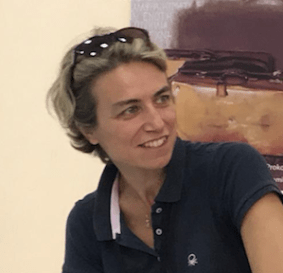
Dr. Antonia Liguori
Senior Lecturer in Applied Storytelling
Dr Antonia Liguori is a Senior Lecturer in Applied Storytelling at Loughborough University, School of Design and Creative Arts. She has a PhD in History and Computer Science from the University of Bologna and, before joining academia, worked for over ten years as a digital strategist in the heritage sector in Italy.
Her research focuses on three main strands: applied storytelling for eco-social justice; digital storytelling in (cultural/heritage) education; storytelling and urban design. More recently, after having joined HEART – Healing Education Animation Research Therapy, she has been exploring digital storytelling as therapeutic intervention.
On behalf of the Storytelling Academy, she is involved in many international projects to develop tools and methods to foster innovation in education; to explore the role of storytelling in today’s digital world; to investigate and trial ways of using digital storytelling as a participatory methodology for transdisciplinary research.
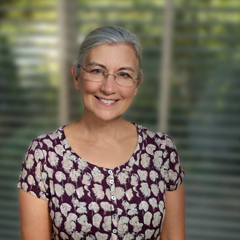
Dr. Pip Hardy
Research Associate
Pip is a Research Associate with the Storytelling Academy, working specifically on the InterAct Project. She will be investigating how digital storytelling can provide the human insights to augment the use of technology in the manufacturing industry, leading to innovation, transformation, collaboration and contributing to businesses that are sustainable in social, economic, human and environmental terms.
Pip’s involvement with digital storytelling goes back to 2003 when she co-founded the Patient Voices Programme along with Tony Sumner. An educator by background, her aim was to use digital stories as prompts for reflection, discussion and debate within elearning programmes in healthcare.
Pip will be working closely with the Storytelling Fellows, teaching them how to create digital stories, developing a strong community of practice and supporting the Fellows as they, in turn, pass on the skills of digital storytelling to their own colleagues. She will also be conducting research to discover the human insights revealed by the stories and how these can contribute to innovation and transformation.
